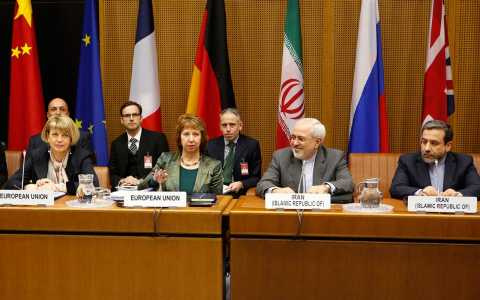What Will Happen In Comprehensive Negotiations

-In my opinion, the fact that the US asks to place issues such as human rights and Iran’s ballistic missiles on the agenda of the comprehensive nuclear negotiations and Iran’s opposition to this demand is neither due to the emergence of differences between the two sides nor due to the purchase of a leverage to use in the negotiations.
-It is natural that negotiations that take place for confidence-building have a broad meaning. In other words, the two sides do not intend to bring up issues artificially, but the fact is that many issues exist in the nature of confidence-building.
-For example, the P5+1 may not have any concern about Iran’s 20% enriched uranium if the range of Iran’s missiles does not exceed a certain limit. This means that it is possible that, on the nuclear issue, the other party expresses a strong position with regard to the 20% or 50% enriched uranium but its real concern is when Iran produces missiles going beyond 4000 kilometers.
-Now, if Iran states that it does not intend to extend the range of these missiles to more than 3000 kilometers, then the ice of the other party will break and they will not be concerned about the 20% or 50% enriched uranium.
-Therefore, if in the negotiation we find out what the concerns of the other party are exactly, then we can gain even those issues which are apparently important for the other party and hand over those issues which are irrelevant for us.
-Thus, Iran must not be concerned about the bargaining of the P5+1 over the agenda of negotiations. Iran must be patient; the other party might have certain concerns that it may not express in the first stage and only state that the issue of ballistic missiles must be placed on the agenda.
-Now if Iran expresses its opposition to this issue and states that the issue of missiles should not be placed on the agenda and they insist that it should, then there might be a deadlock. But if Iran shows flexibility and finds out what the intention of the other party is behind their demand, then misunderstandings will be removed.
-Therefore, in the confidence-building negotiations, issues may be proposed which might not have any apparent and direct relation to the main issue of negotiations, but it may, in fact, be greatly related.
-Mr. Zarif and Iran’s negotiating team must first listen to the statements of the other party and see, for example, what the intention of the other party is behind proposing the issue of human rights and how it is related to the issue of confidence-building. If their intention has a logical relation with confidence-building, then Iran could talk about it.
-Therefore, we must not be very rigid in negotiation and we must show some flexibility in order to understand the exact intention of the other party.
-Confidence-building negotiations are different from negotiations about the temporary six-month plan. The objective of the confidence-building negotiations is for the international community to state that it does not have any doubt about Iran any more.
-Hence, since there is such an objective, negotiation becomes very complex and the agenda may be very lengthy and the process of negotiations might be long as well.
-Therefore, we must ascertain the negotiators that we understand that the negotiation might be long and complicated and not repeatedly ask them about its results, because this type of negotiation does not usually reach a conclusion in a short period of time.
-The trend of negotiations has not changed since the Geneva Agreement and we have now passed the stage of the temporary six-month agreement and entered the comprehensive plan which has its own complexities. If these negotiations succeed, then there will be no unfair talk about Iran’s nuclear activities, missiles and foreign policy.

